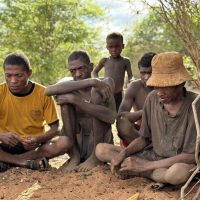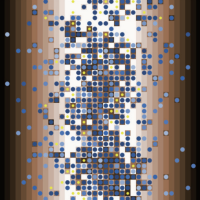RESEARCH OVERVIEW
Our laboratory focuses on understanding how the diversity of human behavior and the mind has been shaped by a universal human nature in an evolutionary context. In this context, we investigate the diversity and dysfunction of human behavioral patterns from the perspectives of evolutionary anthropology, evolutionary medicine, and behavioral ecology, with particular emphasis on the ecology of infectious diseases, individual and cultural differences, and multiple behavioral strategies.
1. Multiple Behavioral Strategies and Ecological Adaptation
Humans do not follow a single fixed behavioral strategy but flexibly adopt multiple strategies in response to changing environmental conditions. We investigate how this behavioral diversity has evolved as an adaptive outcome of natural selection, shaped by factors such as uneven resource distribution, mobility constraints, population density, and pathogen stress. We also examine how the repeated use of such strategies can give rise to spontaneous forms of social order—emerging as shared customs, institutions, and moral norms without centralized design.
2. Pathogen Ecology and the Behavioral Immune System
Pathogens are not only biological threats but also powerful forces shaping human behavior and cultural evolution. We focus on the behavioral immune system (BIS), a set of psychological mechanisms that detect and help avoid potential sources of disease before infection occurs. Our research examines how disease-avoidance behaviors emerge and operate at both individual and collective levels. Beyond immediate avoidance, BIS influences broader cultural patterns, contributing to the formation of social norms, rituals, and institutional structures. We analyze how pathogen-related pressures have co-evolved with human psychology and society within ecological and evolutionary frameworks.
3. Dysfunctional Behavior and Evolutionary Mismatch
Behaviors such as self-harm, aggression, compulsive rituals, and extreme social withdrawal are not merely pathological but can reflect once-adaptive responses or maladaptive remnants shaped by evolutionary history. We examine the ecological and social contexts in which such behaviors may have served adaptive functions, and how they become problematic in modern environments due to evolutionary mismatches. Our research investigates how these behaviors originated, persisted, and have been culturally mediated—either reinforced, suppressed, or reinterpreted—across time.

Field-work
We conduct ethnographic fieldwork to collect in-depth, context-rich data on human behavior, social norms, and cultural practices. This method enables us to ground our research in real-world ecological and cultural settings, providing critical insights into how behavioral strategies are shaped by environmental and social factors.

Behavioral Experiment
We design and implement behavioral experiments to examine specific cognitive and strategic responses under controlled conditions. These experiments help isolate causal mechanisms behind decision-making, cooperation, punishment, disease avoidance, and other evolutionarily relevant behaviors.

Simulation Modeling
We use simulation modeling—including equation-based and agent-based models—to explore the dynamics of complex behavioral systems. Equation-based models offer mathematical representations of evolutionary processes, while agent-based models simulate interactions among autonomous individuals in diverse environments.



